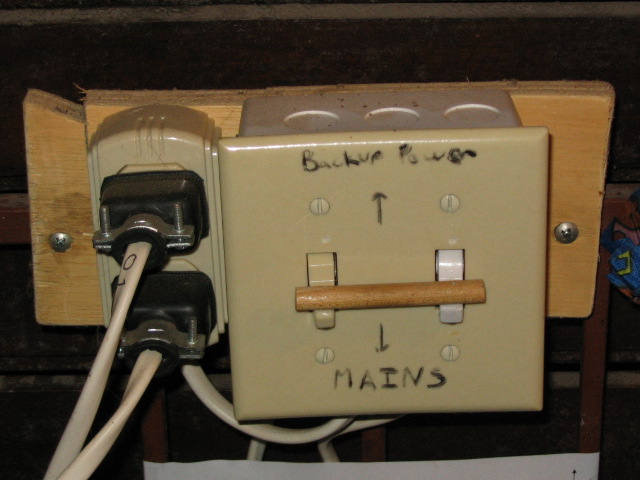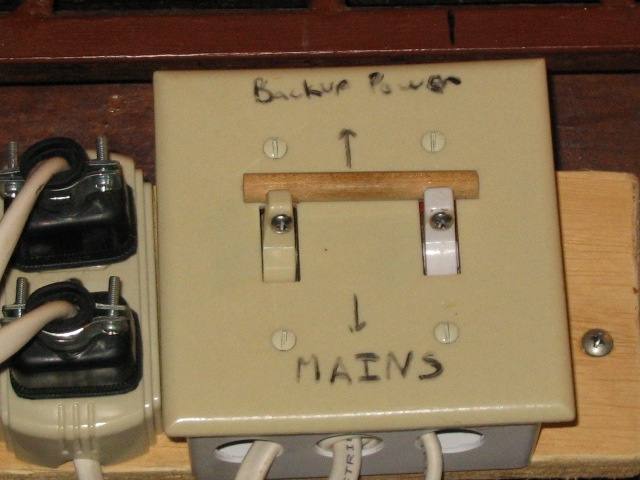A picture's worth a thousand words:


It sounds like I have something very similar to what you want to do. Basically, I have an 800w inverter connected to several truck batteries (12v bank), and I connect these to the car and use the car engine and alternator to charge them up.
The inverter is connected to that power transfer switch, which is basically just 2 2-way switches connected together so that they both swicth at the same time. It works great. I then have one circuit of my house plugging into that transfer switch. When power goes, I just flip that switch and turn on the interter. I can power several lights, a computer and the tv as long as there is gas in the car. You could do the same thing with a small engine and a car alternator. If you can you could use 2 alternators. They should be atleast 60amps each, so that is 120amps * 12v which is 1440 watts. Even with some lossed you would still be getting atleast 1kw. Then you just need a big enough inverter to power what you need.
You could disconnect one circuit from your house, put a plug on the end of it and connect it to a similar power transfer switch, but I found it was easier just to run a whole new circuit to the things that needed backup power.
Oh, and you should certainly be able to run your frige off a system like this. Friges have a high surge when they're first turned on, but once they're running they only use about 300w (mine atleast). So your idea should work.
Have fun,
Cheers,
Stephen.